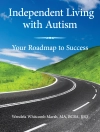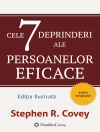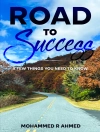What constitutes real recovery for adult victims of abuse? Current support offered to adults is often poorly planned and informed; this book sheds light on the true impact of abuse and how it can be healed.
Good Practice in Promoting Recovery and Healing for Abused Adults explores the idea of ‘recovery’ being something physical in the short-term and ‘healing’ as an emotional process for long-term work. The book features chapters written by practitioners and researchers from various backgrounds and gives an insight into how to be creative in helping both male and female victims through recovery and healing processes. The prologue introduces the views of victims themselves before the opening chapter considers how recovery and healing should fit into the adult safeguarding process. The chapters then describe creative therapeutic methods which can be employed to help victims recover and to heal in different settings, whilst highlighting the long-term effects of abuse and the subsequent issues to be addressed. The issues covered range from child sexual abuse, domestic abuse and sex trafficking to the abuse of men and holocaust victims.
With pedagogical features throughout, the book is essential reading for social workers, nurses, housing officers, support workers, counsellors, therapists, and for anyone working with adults who have experienced abuse in childhood or adulthood.
表中的内容
Introduction: Listening to What Victims Have To Say about Recovery and Healing. Jacki Pritchard, Jacki Pritchard Ltd, UK. 1. How Recovery and Healing Should Fit into the Adult Safeguarding Process. Jacki Pritchard. 2. Recovery and Healing From Complex Trauma. Christiane Sanderson, Independent consultant, UK. 3. The Work of a Sexual Assault Referral Centre. Bernie Ryan, St. Mary’s Sexual Assault Referral Centre, UK. 4. Male Survivors of Childhood Sexual Abuse: Experience of Mental Health Services. Sarah Nelson, Ruth Lewis and Sandra S. Cabrita Gulyurtlu, University of Edinburgh, UK. 5. Recovery Through Psychodynamic Therapy: Working with Men who Have Experienced Sexual Violation. Georgina Hoare, Survivors UK. 6. Surviving Sex Trafficking: Recovery and Healing. Krista Hoffman, Pennsylvania Coalition Against Rape, USA . 7. ‘To Be Who We Really Are’: Recovery and Healing After Domestic Abuse. Dr Hilary Abrahams, University of Bristol, UK. 8. Helping Recovery and Healing: A Supported Housing Project Approach. Jacqui Smith, Young Women’s Housing Project, UK. 9. Louder Than Words: Art Therapy with Individuals with Intellectual Disabilities Who Have Been Abused. Amanda Gee, Vita Community Living Services, Canada. 10. Recovery and Healing in Survivors of the Holocaust. Judith Hassan, Jewish Care, UK. 11. Group Work and the Healing Process. Jacki Pritchard. Epilogue: The Maslow Experiment. Jacki Pritchard and Hilary Abrahams. Index.
关于作者
Judith Hassan, OBE, is Jewish Care’s Special Advisor on Therapeutic Work with Survivors of War Trauma. She has a BSc (Hons) in Human Relations and is a qualified social worker. Judith has worked for Jewish Care for 42 years and considers they have always been the vital support for the services for survivors. For 36 years she pioneered and developed specialist services for survivors and refugees, both as a practitioner and as director of the services. She founded the Holocaust Survivors’ Centre. She trains professionals and consults internationally on how to work with the effects of war trauma. Her work is widely published. She was awarded the National Care Awards Lifetime Achievement in Care in 2007, and an OBE for Services to Holocaust Survivors in 2008. Judith feels privileged to have been engaged in such rewarding work.












